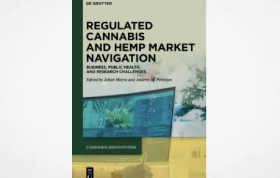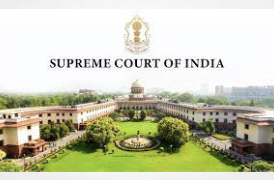In a complex legal case involving bail conditions and environmental restoration, the Supreme Court quashed the bail granted by the Madras High Court, emphasizing the importance of adhering to established legal norms. This case highlights the intricate balance between law, society, and individual rights.
In a landmark decision that underscores the nuanced layers of India’s judicial system, the Supreme Court recently intervened in a bail matter initially adjudicated by the Madurai Bench of the Madras High Court. At the heart of this legal drama is Mohamed Yusuf, a resident of Kumbakonam, caught in the crosshairs of law enforcement for the illegal transportation of a staggering 233 kilograms of ganja, a quantity far beyond permissible limits. This incident not only highlights the stringent crackdown on banned substances but also throws into relief the sometimes contentious dialogue between different tiers of the judicial hierarchy in India.
The High Court’s Controversial Bail Conditions
Yusuf’s legal journey took a significant turn when the Madurai Bench of the Madras High Court granted him bail, imposing a condition that seemed unconventional in the landscape of legal precedents. The court ordered Yusuf to deposit ₹1 lakh towards the restoration of waterbodies in Othakadai and Narasingam in the Madurai district. This directive was not just about securing Yusuf’s temporary freedom but was also envisioned as a contribution to environmental restoration. Yusuf, for his part, claimed innocence and asserted that he had no prior criminal record, a statement that would later come under scrutiny. The local body authorities were earmarked to utilize the deposited amount for the specified restoration work, and Yusuf was to appear before the Kumbakonam police daily until further orders.
The Supreme Court’s Intervention
However, the narrative took a sharp turn when the Supreme Court assessed the conditions set by the High Court for Yusuf’s bail. The apex court found these conditions to be “alien to bail jurisprudence,” signaling a profound disconnect between the High Court’s intentions and the established legal framework governing bail provisions. The Supreme Court’s objection was not just a matter of legal technicality but a reflection on the essence of bail conditions and their alignment with jurisprudential principles. Consequently, the Supreme Court quashed the bail granted by the High Court, a move that underscored the paramount importance of adhering to established legal norms and procedures. Yusuf was directed to surrender within ten days, a directive that placed him once again in the throes of judicial scrutiny.
The Broader Implications
This legal saga, spanning from the streets of Kumbakonam to the esteemed chambers of the Supreme Court, encapsulates more than just the fate of one individual. It opens up a broader discourse on the nature of bail conditions, the enforcement of laws concerning banned substances, and the interplay between environmental conservation efforts and legal mandates. The Supreme Court’s decision to quash the bail not only reinstates the primacy of established legal frameworks but also serves as a cautionary tale about the complexities and challenges of innovating within the ambit of legal jurisprudence. Moreover, it highlights the rigorous scrutiny that cases of illegal substance transportation undergo, reflecting the judiciary’s unwavering commitment to upholding the law.
In conclusion, the case of Mohamed Yusuf is emblematic of the intricate dance between law, society, and individual rights. It is a stark reminder of the judiciary’s pivotal role in balancing the scales of justice, ensuring that the conditions of bail, while meant to be corrective and sometimes rehabilitative, must foremost adhere to the bedrock principles of legal jurisprudence. As this case fades into the annals of legal history, its lessons and implications will undoubtedly continue to resonate, shaping future discourse on the nature of justice and the rule of law in India.
















